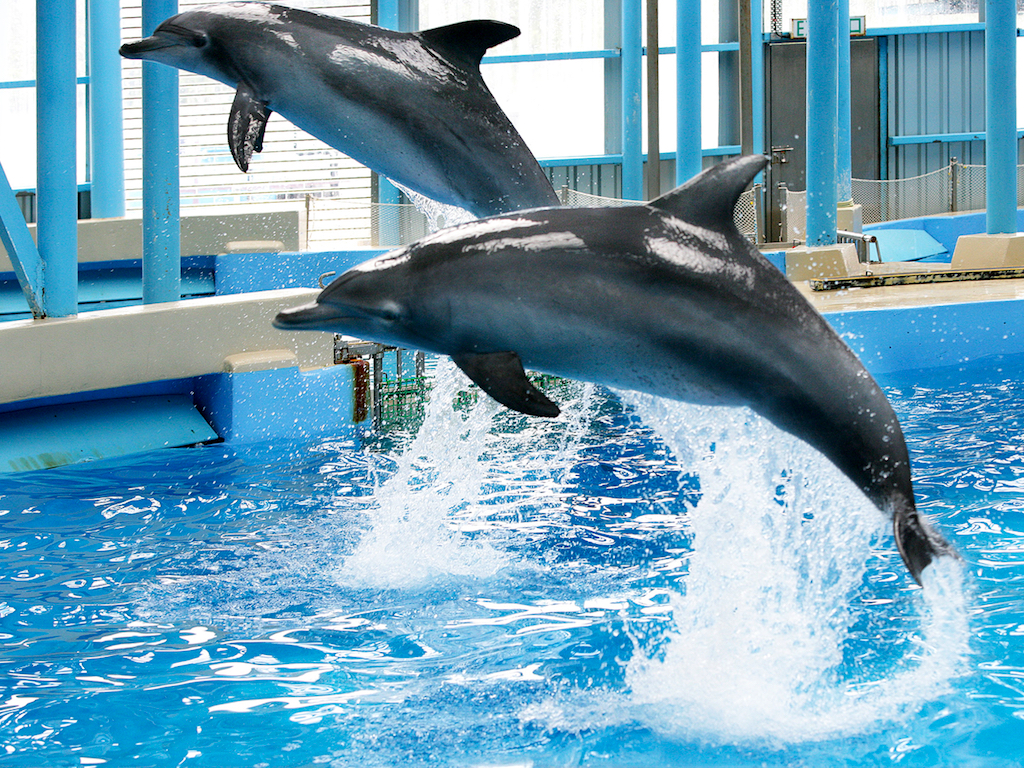3 Mins Read
Ocean Park, Hong Kong’s animal theme park, has finally announced an end to its controversial dolphin and sea lion show after coming under fire from environmental and animal rights activists. Until now, the park had staunchly defended the dolphin show, saying that it helps to educate the public about dolphins. The move is a part of its plan to revamp the theme park with 26 new rides, which Ocean Park says will attract “millions” by 2027.
Hong Kong’s original theme park that has operated since 1977, Ocean Park, has just announced that they will be scrapping the unethical dolphin and sea lion show. The show has been criticised for years by animal rights activists and environmental organisations, especially after the death of a few dolphins. However, until the recent decision to scrap the Ocean Theatre altogether, the park has defended the show for its supposed “educative” value.
The announcement comes as a part of their “brand new” plan to revamp the facility into an “adventure” themed park, which will see 12 older rides taken down and 26 new ones put in place. Work on the expansion plan will officially begin in 2023, and new attractions are expected to be completed by 2027. The cash-strapped park said it will be asking for a one-off HK$ 10.64 billion cash injection from taxpayers.
“Regarding the dolphins…it was decided that we no longer require the Ocean Theatre as a base for a venue, and we are going to stop the program on the dolphins,” said Ocean Park chairman Leo Kung. He added that once the theatre facility shuts down, the dolphins will be “transported into another area” without elaborating where that will be.
For years, Hong Kong’s activists have called on Ocean Park to phase out their forced animal shows and artificial breeding programs. In May 2018, animal rights group Dolphin Family organised a protest outside the theme park as a part of the annual worldwide initiative Empty The Tanks, which aims to raise awareness about the unethical operations of cetacean captivity. According to marine ecologists from Empty The Tanks, mammals that are kept in tanks do not eat, socialise, reproduce, exercise or behave naturally.
Not only does keeping dolphins captive involve hurting or killing dolphins during the capture process, these kidnappings have terrible consequences on the physical and mental health of the mammals. Kept in bare, tiny and sterile surroundings with little natural diversion and stimulation, captive dolphins have to be regularly treated with ulcer and antidepressant medication to relieve them of the suffering of their cruel living conditions and forced behaviours that they have to perform for human entertainment.
Ocean Park has seen a sharp drop in visitor numbers in recent years. In their annual report for the financial year ending June 30 last year, the park’s officials disclosed that they have been experiencing a downturn for four years in a row.
The victory may be bittersweet- commenting on the news in a Facebook post, long-time marine life activist and founder of Hong Kong-based NGO OceansAsia said: “The show is over, which is great. However, this has been in the pipeline for the last 5 years as a part of the overhaul plans due to the Ocean Theatre complex in need of so much work. The dolphins will be relocated to another new exhibit still within Ocean Park, so in my eyes, only a minor victory…All the dolphins in Ocean Park were born in captivity, so could never be released into the wild.”
Lead image courtesy of Ocean Park.




